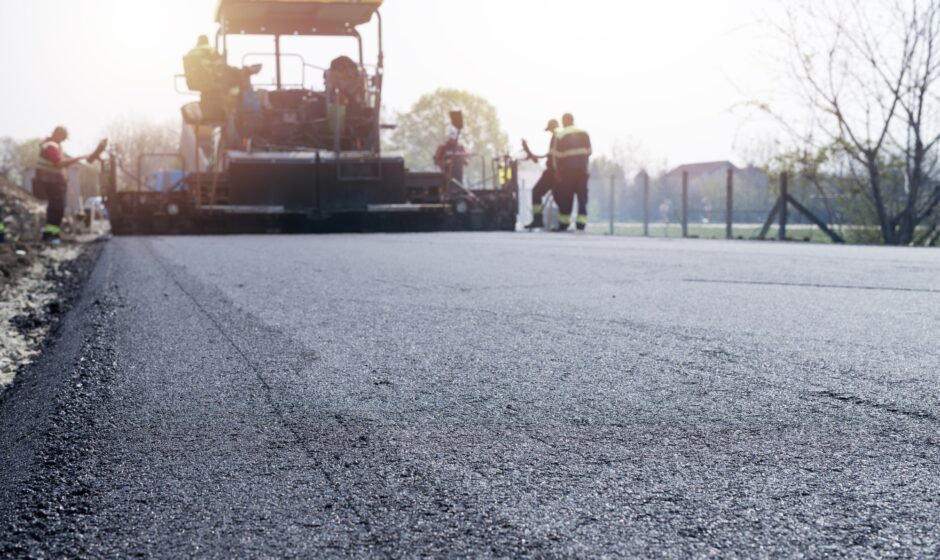When investing in a new driveway, parking lot, or roadway, one of the most common questions property owners ask is: “How long will it last?” The lifespan of asphalt paving depends on several factors, including the quality of installation, regular maintenance, and environmental conditions. With expert insights and proper care, asphalt can provide years of reliable performance and visual appeal.
Understanding the Lifespan of Asphalt Paving
On average, asphalt paving can last anywhere from 15 to 25 years. However, this is not a one-size-fits-all figure. Some asphalt surfaces can last even longer with proper care, while others may need repairs or replacement sooner due to neglect or heavy usage. The longevity of asphalt paving is influenced by a combination of factors, including installation practices, usage patterns, and external elements.
Factors Affecting Asphalt Paving Longevity
- Quality of Installation
The foundation of any paving project is critical to its durability. Proper site preparation, including grading and compaction, ensures the asphalt paving has a strong base to support heavy loads. If the initial installation is done poorly, the surface is more likely to crack, rut, or develop potholes over time. Hiring experienced professionals like Ed’s Paving & Sealcoating ensures a high-quality installation that maximizes the lifespan of your asphalt surface. - Usage and Traffic Load
The amount and type of traffic the asphalt surface experiences play a significant role in its longevity. Residential driveways that support light vehicle traffic will naturally last longer than commercial parking lots or roadways exposed to heavy trucks and machinery. Designing the pavement thickness to accommodate expected traffic loads is essential for durability. - Climate and Weather Conditions
Asphalt paving is subject to the effects of weather, including temperature fluctuations, moisture, and UV exposure. In colder climates, freeze-thaw cycles can cause cracks and other damage if the pavement is not properly maintained. In warmer regions, extreme heat can soften asphalt, leading to rutting or deformation. Selecting the right asphalt mix for the local climate can help mitigate these issues. - Maintenance Practices
Regular maintenance is perhaps the most significant factor in determining how long asphalt paving will last. Simple practices such as sealcoating, crack sealing, and patching small potholes can extend the lifespan of asphalt surfaces by years. Neglecting maintenance, on the other hand, allows minor issues to escalate, leading to costly repairs or premature replacement.
The Role of Sealcoating in Extending Lifespan
Sealcoating is a protective layer applied to the surface of asphalt paving. This process helps shield the asphalt from UV rays, water, and chemicals such as oil and gasoline, which can cause degradation over time. Sealcoating not only prolongs the life of the pavement but also restores its rich black color, enhancing its visual appeal. Regular sealcoating every 2–3 years is a key component of an effective asphalt maintenance plan.
Signs That Your Asphalt Paving Needs Attention
Even with the best practices, no paving material lasts forever. Recognizing early signs of wear and tear can help you address issues before they become significant problems. Some common indicators that your asphalt paving requires attention include:
- Cracks: Small surface cracks can develop over time due to temperature changes and wear. If left unaddressed, these can widen and allow water to penetrate the base layer, causing more extensive damage.
- Potholes: Potholes form when water infiltrates and weakens the pavement base. Prompt patching can prevent further deterioration and ensure safety.
- Fading Color: Asphalt paving can lose its dark, rich appearance due to UV exposure. While this does not immediately affect performance, it may signal the need for sealcoating.
- Pooling Water: Standing water on the surface indicates poor drainage, which can accelerate damage. Addressing drainage issues early can prevent long-term problems.
Repair vs. Replacement: What to Consider
Over time, you may face the decision of whether to repair or replace your asphalt paving. Minor damage, such as small cracks or localized potholes, can often be repaired cost-effectively. However, if the pavement has extensive damage or structural issues, replacement may be the better option. Consulting with experts can help you make the right choice based on the condition and age of your asphalt surface.
How to Maximize the Lifespan of Asphalt Paving
- Invest in Quality Installation
A well-installed asphalt surface is the foundation for long-term durability. Partner with professionals who use high-quality materials and proven techniques to ensure a smooth and stable pavement. - Perform Regular Maintenance
Proactive maintenance is essential to extending the life of asphalt paving. Regular cleaning, sealcoating, and addressing minor issues promptly can prevent larger, more expensive problems. - Control Traffic Loads
Design your asphalt paving to accommodate expected traffic levels. For areas with heavy traffic, opt for thicker pavement and stronger base layers to handle the load. - Ensure Proper Drainage
Standing water is one of the most common causes of asphalt deterioration. Ensure that the paving is designed with appropriate slopes and drainage systems to direct water away from the surface. - Monitor Weather Impacts
Protect your asphalt paving from extreme weather conditions. In winter, use de-icing products sparingly and avoid metal shovels that can scrape the surface. In summer, watch for signs of softening due to heat. - Schedule Professional Inspections
Periodic inspections by professionals can help identify potential issues before they escalate. Expert assessments ensure that your asphalt paving remains in optimal condition for as long as possible.
Why Choose Asphalt Paving?
In addition to its longevity, asphalt paving offers a range of benefits that make it a popular choice for both residential and commercial applications. These include:
- Cost-Effectiveness: Asphalt is affordable to install and maintain, making it a budget-friendly option.
- Quick Installation: Asphalt projects can often be completed in a matter of days, minimizing disruptions.
- Aesthetic Appeal: Its sleek, black finish enhances the visual appeal of any property.
- Eco-Friendliness: Asphalt is recyclable, reducing waste and promoting sustainability.
Partnering with Experts
At Ed’s Paving & Sealcoating, we specialize in providing high-quality asphalt paving solutions tailored to your specific needs. Whether you require a new driveway, a commercial parking lot, or maintenance services, our experienced team is committed to delivering exceptional results. With our expertise and dedication to quality, we help you maximize the lifespan of your asphalt paving, ensuring a surface that stands the test of time.
Conclusion
Asphalt paving is a durable and cost-effective solution for a wide range of applications, offering an average lifespan of 15 to 25 years with proper care. Factors such as installation quality, traffic load, climate, and maintenance practices play crucial roles in determining how long your asphalt surface will last. By investing in professional installation and adopting regular maintenance routines, you can extend the life of your asphalt paving and enjoy its many benefits for years to come.
For expert guidance and services, contact Ed’s Paving & Sealcoating today. Let us help you achieve a durable and visually appealing asphalt surface that enhances your property’s value and functionality.


